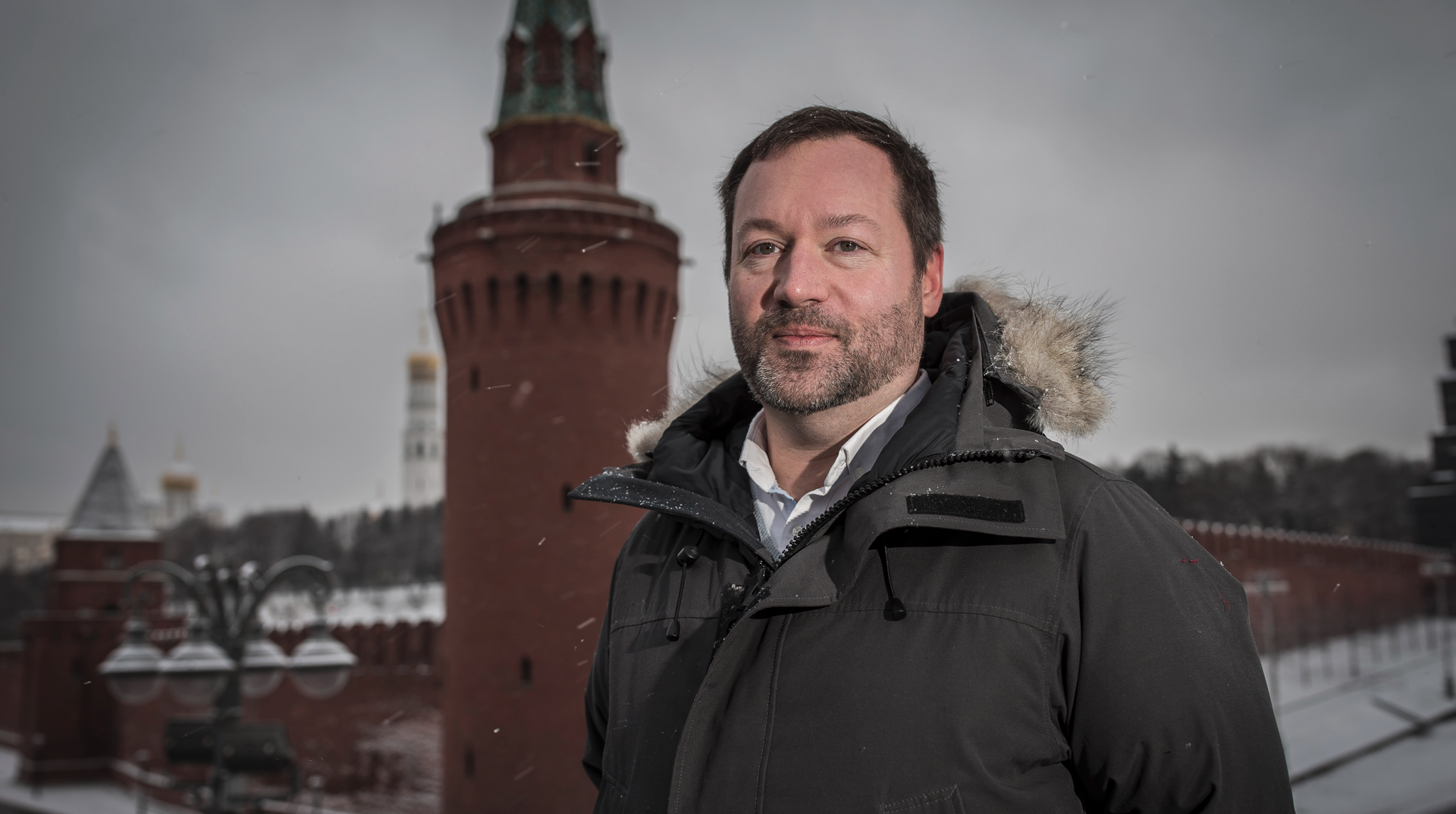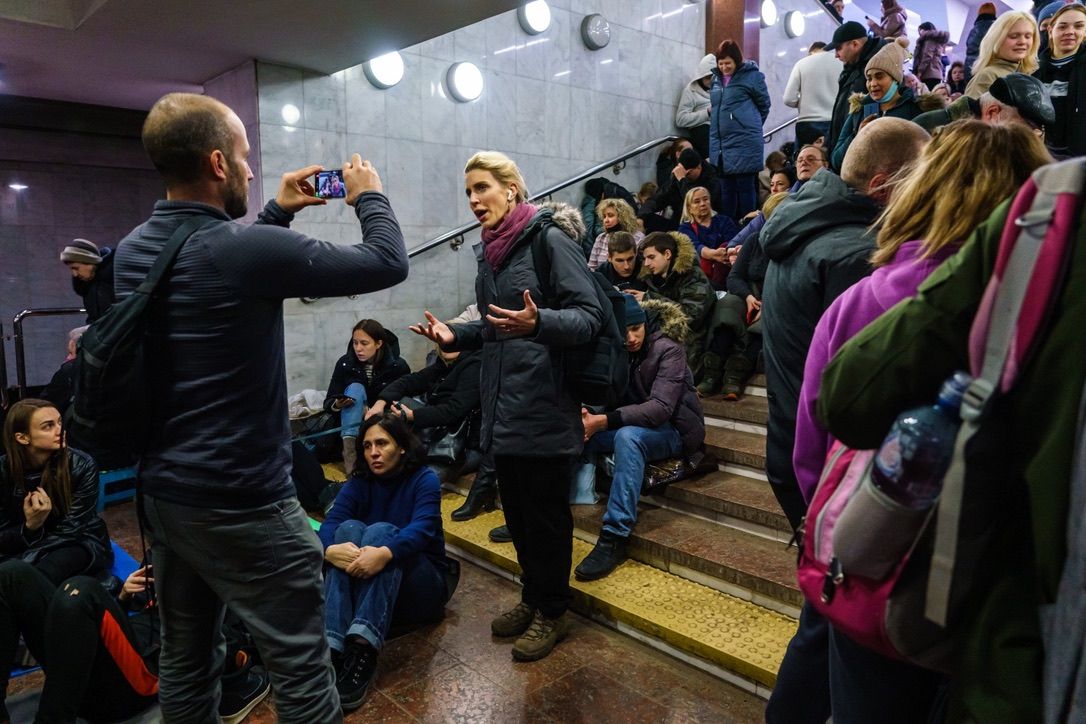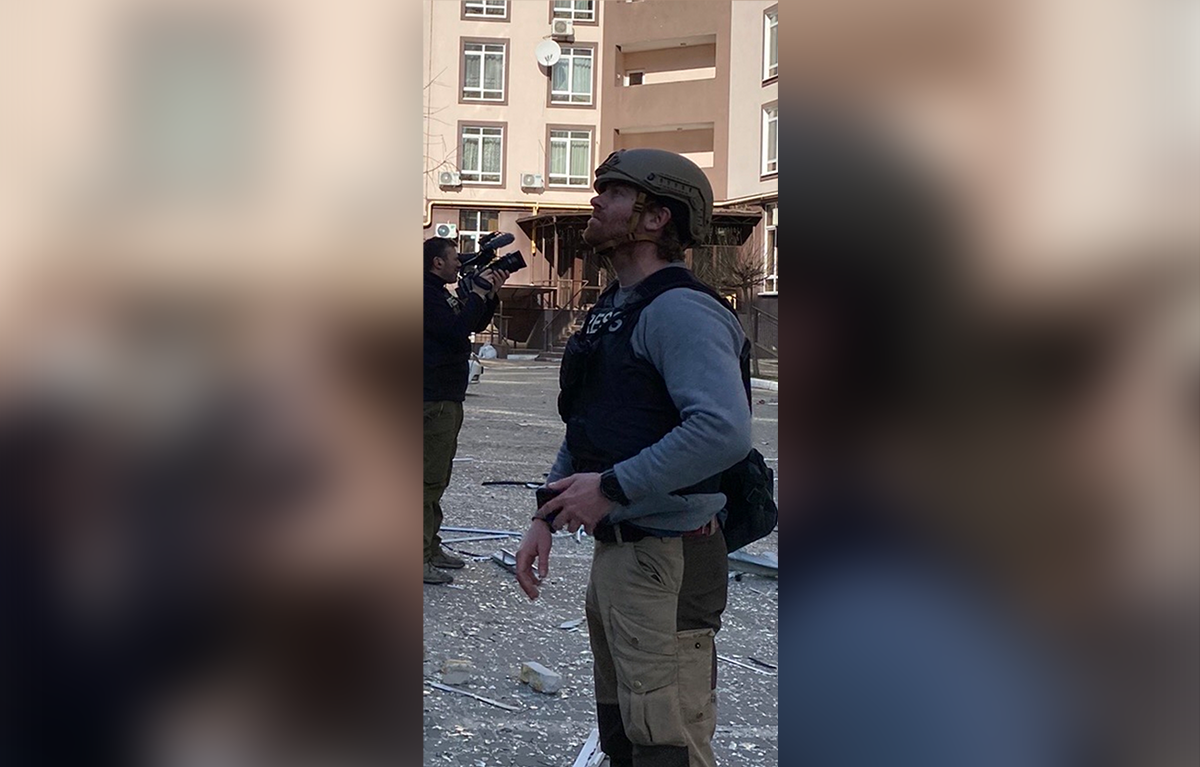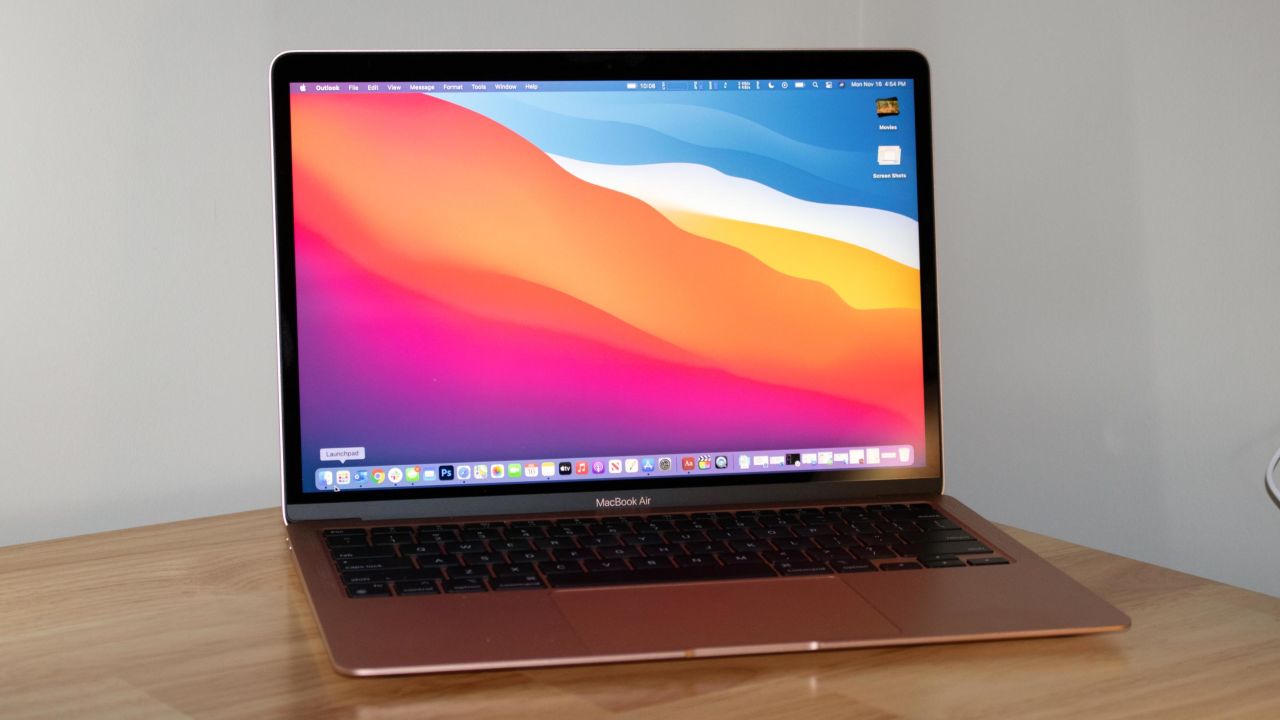
An exclusive inside look with your free CNN account
🎥 they are responsible for security, storytelling and 'ground truth' in CNN’s war coverage
CNN’s operation in Ukraine is, by all measures, massive. Inside CNN spoke with three staffers — Nathan Hodge, Brent Swails and Mike Pratt — who have been working there on and off since January, covering the run-up to the conflict and, since February 24, the war itself.

Nathan Hodge, editor for the CNN Row.
Hodge is an editor for the CNN Row, the organization’s fact-checking team. He keeps all CNN teams informed from a makeshift bureau in Kyiv, where he leads a group of journalists, many from Ukraine, who scour for new information about the war around the clock. He formerly served as CNN Moscow bureau chief.

CNN senior field producer Brent Swails shooting a live shot with Chief International Correspondent Clarissa Ward in the Kharkiv metro station. Photo credit: Marcus Yam/Los Angeles Times/Getty Images
Swails is a senior field producer, working with CNN Chief International Correspondent Clarissa Ward. He helps chase down stories, while coordinating with Hodge to get the latest information on a story or angle they’re covering.

Mike Pratt, CNN director of security and logistics for Europe, the Middle East and Africa, seen here in Irpin, Ukraine.
Pratt is CNN’s director of security for Europe, the Middle East and Africa. He uses his expertise as a former captain in the British Parachute Regiment to help plan the approach toward covering a story safely. He frequently joins newsgathering teams on the ground, most recently with Ward, Swails, their camera operator, Scott McWhinnie, and their translator and fixer, Denis Lapin.
In our conversation, they talked about their roles and their experiences covering the war.
How does CNN ensure teams in the field are safe, while also covering important stories?
Hodge: At CNN, alerting is sort of the bread and butter of what we do. That’s basically making sure not only that viewers and readers have the latest on what’s happening in a very fluid and fast-moving situation, but we need this for our own internal purposes as well, to understand where the story goes next. It’s also a question of team safety. Our news gathering, our overall editorial work, sort of feeds into the overall practice of risk assessment and the question of team safety. So we have to work hand in glove with everyone in the organization.
Swails: In Ukraine, we definitely always have a full-time security risk specialist. We also travel with two vehicles, which is important because obviously we don’t want to get stuck, but also because in this environment we need to be totally self-sufficient in case the power goes or supplies become scarce. We have enough water, diesel, petrol, food, and have the ability to cook our own food in a worst-case scenario. We have a generator that we always lug around. As a result, we have the two vehicles and an extra driver.
Pratt: It’s a massive team effort within the security architecture. What we help the editorial teams to do is achieve their aims with minimal risk. The challenge of safety and security in news is that so often the real gold, the most impactful stories, is right in those gray areas of risk. It’s difficult, because the greatest reward often lies near the greatest threat. So how can we do it in a way that’s as low-risk as possible? It’s certainly not about avoiding risk altogether. For me, it’s about understanding it before you take it, and minimizing the impact of chance wherever possible.
What is something that will stay with you from this experience?
Hodge: The knock-on effects of the war are going to be felt for years and years, in terms of the people whose lives have been upended and reshaped in a very violent and dramatic way. And Russia turning into a very hostile one-man state. As often as we can, I think we need to ground it in some sort of historical context. But it became much more difficult after February 24, when we had to contend with the Russian government passing laws that make it much, much more difficult to do our jobs. The space for independent journalism has been shrinking for 20 years, for decades, over the course of Vladimir Putin’s presidency.
I remember reading a lot of articles about Putin when he appeared on the scene as a nonentity in late 1999 as prime minister. He seemed to be an unassuming civil servant in an ill-fitting suit who didn’t project the aura of power that he has assumed over all these years. And unfortunately the truism about what power does to a person is true. And so it’s been 22 years of uncontested power, and steady accumulation of it, that leads us to this point.
Pratt: Honestly, the way Russia is broadly waging this war is the way I expected. However, I thought they’d be more successful more quickly. I, like everyone else, underestimated the Ukrainians. They certainly had some advantages. The terrain and the inefficiency of the Russians, but nothing compares to the Ukrainian commitment level at the national level. When you go around and you’re meeting grannies who are making Molotov cocktails, you look at each other and think, “Hey, this lot are up for it.” That’s the crazy thing about conflict that I’ve learned. For all of the weapons and the technology and the statesmanship, it’s still a psychological game of “who wants it more?”
Swails: How pointless it all is. It’s the whims of one man. We followed one Ukrainian soldier’s family as they went to bury him in a cemetery. Off to the side, there was a bulldozer, making new ground, adding on to this really old cemetery. In that new section it was just grave after grave, freshly dug ground with handwritten placards. That in itself was startling. But what was more startling to me was that there was just a steady stream of people coming in and searching through these graves, looking at these makeshift tombstones to see if it was their relatives. They had no idea what happened to their loved ones. Wives had no idea what happened to their husbands. Mothers had no idea what happened to their sons. It was just one of those things where you really just realize that the amount of death was incredibly pointless. And the impact – you can never truly describe the impact of it. All of us have realized this is not a situation that is going to resolve itself. We’ll be coming back to Ukraine to cover it for some time. It’s depressing, but it also drives us. You still want to get out there. You still need to cover it.
|
|
💳 CNN insider rec of the week
Brought to you by CNN Underscored
Get up-to-the-minute news broadcasts from CNN’s Ukraine coverage with one of Underscored’s picks for the best laptops of 2022. Each device should fit all of your needs from reading articles, streaming and working. Keep reading to see the top picks.
|
|
📢 before you go
🇨🇳 Read: CNN's David Culver recently left Shanghai after a 50-day lockdown in the Chinese city. He filed this incredible reporter's notebook of his journey to a "whole new world" outside China.
🇮🇹 Explore: There's nothing like a good cannoli, but did you know this delicious Italian pastry has a bit of a raunchy origin story? Check it out on CNN Travel.
🎧 Listen: CNN Chief Medical Correspondent Dr. Sanjay Gupta is back for season 4 of the Chasing Life podcast. Hear how gratitude helped one woman navigate a life-changing medical diagnosis. Plus, how you can implement a gratitude practice into your daily life.
|
|
✉️ talk to us
Is there something or someone at CNN you'd like to see spotlighted next? Send your thoughts to [email protected].
|
|
- Written and edited by Beryl Adcock, Tricia Escobedo and Jessica Sooknanan
INSIDE CNN
An exclusive inside look with your free CNN account
You are receiving this newsletter because you're subscribed to Inside CNN.
No longer want to receive this newsletter? Unsubscribe.
Interested in more? See all of our newsletters.
Create CNN Account | Listen to CNN Audio | Download the CNN App
® © 2022 Cable News Network, Inc.
A Warner Bros. Discovery Company. All Rights Reserved.
One CNN Center Atlanta, GA 30303
|
|

